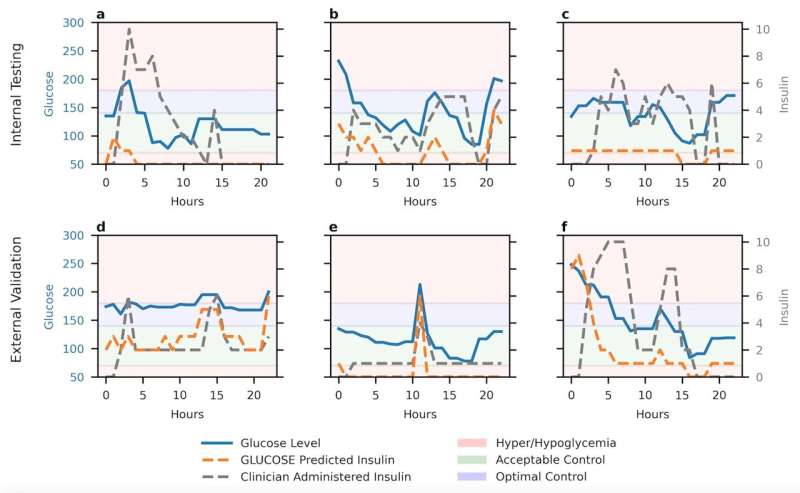After cardiac surgery, patients are at risk of both high and low blood sugar, which can lead to serious complications. Managing these fluctuations requires careful insulin dosing, but existing protocols often fall short due to the unpredictable nature of ICU care and differences among patients, say the investigators.
To address this challenge, the research team created a reinforcement learning model, named GLUCOSE, that recommends insulin doses tailored to each patient’s needs. In tests using data from real-world ICU cases, GLUCOSE matched or even outperformed experienced clinicians in keeping blood sugar levels within a safe range—despite having access to only current patient data, while doctors used full patient histories.

